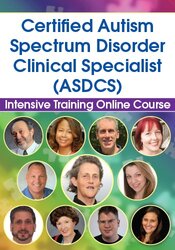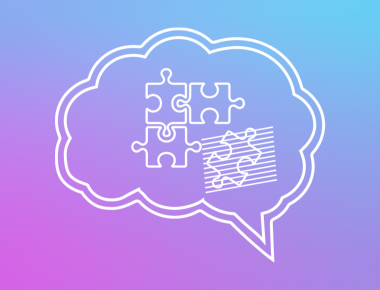A Strengths-Based Approach to Autism Assessment
FREE Video Demonstration

Why is autism screening and assessment important?
While it’s important not to get caught up in labels, sometimes they do serve a function. Part of what labels do is they give us a roadmap to good treatment and interventions.
But we all know that autism is a spectrum, and there are different levels of severity. If we look at the different things that make up core processing differences in autism, both strengths and challenges, these can look different from person to person, but also within an individual's life.
At the end of the day, what we’re all trying to do is help an individual make sense of their own experience: to really start to understand their own identity, how they interact with the world, how they interact with themselves, and how they interact with other people. Then as professionals or parents, how can we go in and have the best understanding of the person we are working with so we can best support them?
We always want an assessment to look at the strengths of an individual. Some common strengths of autism include honesty, a desire to connect, a good memory, attention to detail, and a unique sense of humor. We want to make sure that we are really honing in on these things when we are doing a screening, a diagnostic interview, or talking to teachers.
We want to support the areas that can help individuals with autism meet their goals. We also want to think about harnessing their strengths. The neurodiversity movement gives us a nice framework for this kind of assessment. Developmental differences are a result of normal variations in the genome. They are not necessarily something wrong that needs to be fixed. There just are differences, and with these differences can come some challenges when we are in a largely neurotypical society.
Sometimes people are going to say, “Is this autism? Is this something else?” What we do know is a child is struggling, so how can we begin to understand their behaviors a little bit better from an assessment framework? In this regard, it can be helpful to find the function of a behavior. What is a person getting out of this behavior? What is maintaining their problematic behavior? This should be a collaborative process. It shouldn’t be the school or parents saying that behaviors are problematic. It’s really about the person who’s needing help. How are they saying this behavior is getting in the way of their life?
Sometimes what we need to do as part of this functional assessment is really help them connect the dots and tell them, “I keep on seeing this behavior, and it keeps on getting you into trouble with your friends. I'm really wondering if we should we try to figure this out. Should we be detectives?” This is crucially important. If we are thinking about strengths, we want to teach an individual that they can apply these skills. They can then apply the insight.
In the video below, see how experts Rebecca Sachs, PhD, ABPP, and Tamara Rosen, PhD, roleplay a strengths-based approach to autism assessment:
While it’s important not to get caught up in labels, sometimes they do serve a function. Part of what labels do is they give us a roadmap to good treatment and interventions.
But we all know that autism is a spectrum, and there are different levels of severity. If we look at the different things that make up core processing differences in autism, both strengths and challenges, these can look different from person to person, but also within an individual's life.
At the end of the day, what we’re all trying to do is help an individual make sense of their own experience: to really start to understand their own identity, how they interact with the world, how they interact with themselves, and how they interact with other people. Then as professionals or parents, how can we go in and have the best understanding of the person we are working with so we can best support them?
Assessment is not just a means of getting to a label. We’re really getting to understand a person’s strengths and challenges, as well as ways these intersect.
We always want an assessment to look at the strengths of an individual. Some common strengths of autism include honesty, a desire to connect, a good memory, attention to detail, and a unique sense of humor. We want to make sure that we are really honing in on these things when we are doing a screening, a diagnostic interview, or talking to teachers.
We want to support the areas that can help individuals with autism meet their goals. We also want to think about harnessing their strengths. The neurodiversity movement gives us a nice framework for this kind of assessment. Developmental differences are a result of normal variations in the genome. They are not necessarily something wrong that needs to be fixed. There just are differences, and with these differences can come some challenges when we are in a largely neurotypical society.
Sometimes people are going to say, “Is this autism? Is this something else?” What we do know is a child is struggling, so how can we begin to understand their behaviors a little bit better from an assessment framework? In this regard, it can be helpful to find the function of a behavior. What is a person getting out of this behavior? What is maintaining their problematic behavior? This should be a collaborative process. It shouldn’t be the school or parents saying that behaviors are problematic. It’s really about the person who’s needing help. How are they saying this behavior is getting in the way of their life?
Sometimes what we need to do as part of this functional assessment is really help them connect the dots and tell them, “I keep on seeing this behavior, and it keeps on getting you into trouble with your friends. I'm really wondering if we should we try to figure this out. Should we be detectives?” This is crucially important. If we are thinking about strengths, we want to teach an individual that they can apply these skills. They can then apply the insight.
In the video below, see how experts Rebecca Sachs, PhD, ABPP, and Tamara Rosen, PhD, roleplay a strengths-based approach to autism assessment:
Learn More Strengths-Based Approaches to Autism Intervention

This premier online certification course is bringing you today’s most cutting-edge, strengths-based interventions to help your clients with autism thrive! During this innovative, self-paced course you’ll have the opportunity to learn from the leading voices in the field including, Dr. Temple Grandin and Dr. Stephen Porges – just to name a few. These renowned professionals will guide you through interventions that leverage relationships, trust, communication, acceptance, and the neuroception of safety. From early intervention to transitioning to adulthood, you’ll take away dozens of transformational strengths-based interventions to support your clients regardless of age or developmental stage. Best of all, in just three simple steps after completing the training you can become a Certified Autism Spectrum Disorder Clinical Specialist with Evergreen Certifications!
Meet the Experts:
Tamara Rosen, PhD, is trained in both assessment and therapeutic interventions, Dr. Rosen has worked with youth and adults with Autism Spectrum Disorder (ASD) in a variety of settings for over a decade. She is currently completing her Postdoctoral Fellowship with an emphasis on the intersection of mental health and developmental differences at JFK Partners, University of Colorado School of Medicine. As a fellow Dr. Rosen provides consultation and supervision to developmental pediatricians, social workers, psychology trainees, Speech and Language pathologists and Occupational Therapists. She received a Ph.D. in Clinical Psychology from SUNY, Stony Brook University. Under the mentorship of ASD researcher Dr. Matthew Lerner, she completed her dissertation on the structure of co-occurring anxiety and depression symptoms in youth with ASD. Dr. Rosen is passionate about increasing access to evidence-based mental health services for individuals with developmental differences.
Learn more about their educational products, including upcoming live seminars, by clicking here.
Rebecca Sachs, PhD, ABPP, is a clinical psychologist specializing in the assessment and treatment of individuals on the Autism spectrum who also experience difficult co-occurring disorders, such as Obsessive Compulsive Disorder (OCD) and severe anxiety. She works with individuals across the life-span and loves to talk, lecture and train others about autism and common complicated co-morbidities. Dr. Sachs is board certified in Behavioral and Cognitive Psychology and brings warmth, sensitivity, and a strong sense of humor to her work as a psychologist. She was recognized as a rising star by the Anxiety and Depression Association of America (ADAA), receiving their Career Development Leadership Award in 2015. Dr. Sach’s received her Bachelor's degree, and PhD from New York University and Hofstra University, respectively, and completed a postdoctoral fellowship at the University of Miami. Dr. Sachs is excited to start a second venture this year- a school refusal program for students 6th grade and beyond.
Learn more about their educational products, including upcoming live seminars, by clicking here.
Learn more about their educational products, including upcoming live seminars, by clicking here.
Rebecca Sachs, PhD, ABPP, is a clinical psychologist specializing in the assessment and treatment of individuals on the Autism spectrum who also experience difficult co-occurring disorders, such as Obsessive Compulsive Disorder (OCD) and severe anxiety. She works with individuals across the life-span and loves to talk, lecture and train others about autism and common complicated co-morbidities. Dr. Sachs is board certified in Behavioral and Cognitive Psychology and brings warmth, sensitivity, and a strong sense of humor to her work as a psychologist. She was recognized as a rising star by the Anxiety and Depression Association of America (ADAA), receiving their Career Development Leadership Award in 2015. Dr. Sach’s received her Bachelor's degree, and PhD from New York University and Hofstra University, respectively, and completed a postdoctoral fellowship at the University of Miami. Dr. Sachs is excited to start a second venture this year- a school refusal program for students 6th grade and beyond.
Learn more about their educational products, including upcoming live seminars, by clicking here.



